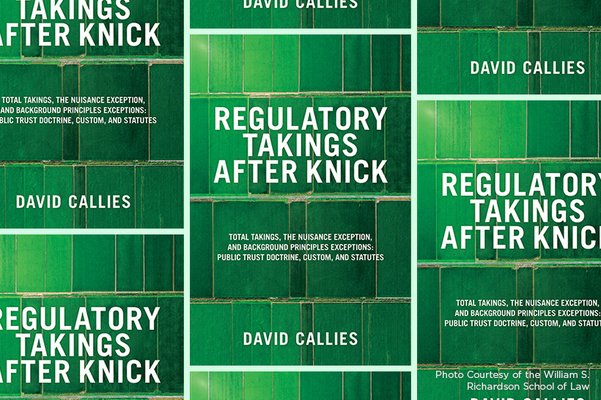‘Regulatory Takings after Knick’ by David Callies

David L. Callies of University of Hawaii at Manoa, William S. Richardson School of Law has published a new book, Regulatory Takings after Knick: Total Takings, the Nuisance Exception, and Background Principles Exceptions: Public Trust Doctrine, Custom, and Statutes.
The book summarizes the Supreme Court's recent decision in Knick v. Township of Scott “which does away with the state action prong of the Court's former ripeness test and what it means for the law of regulatory taking of property.”
From the publisher:
The Supreme Court’s recent decision in Knick v. Township of Scott has been aptly described by some commentators as the most significant property rights case of the last decade. In Knick, the Court found the regulatory takings claim, which had not yet been denied compensation in state court, was ripe nonetheless. In doing so, the Court explicitly overturned the second prong of the so-called Williamson County ripeness test that required property owners to seek a remedy through state action -- usually just compensation -- for the alleged taking before coming to federal court.
The elements of these exceptions are explained in great detail in separate chapters. Understanding these exceptions is critical to litigating about land use regulations for such as open space, agriculture, and preservation/conservation where the subject land is left without any economic use. If the exceptions apply, the landowner gets no compensation. If the exceptions do not apply, the landowner prevails.
Learn more here.
